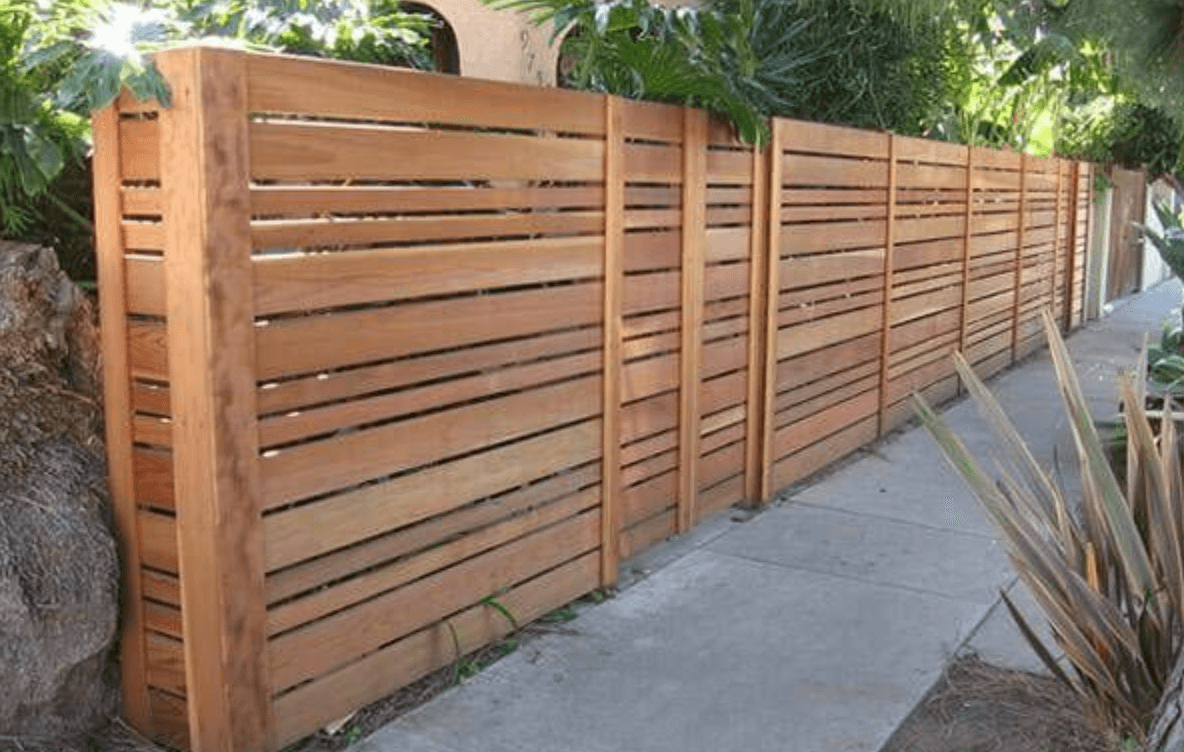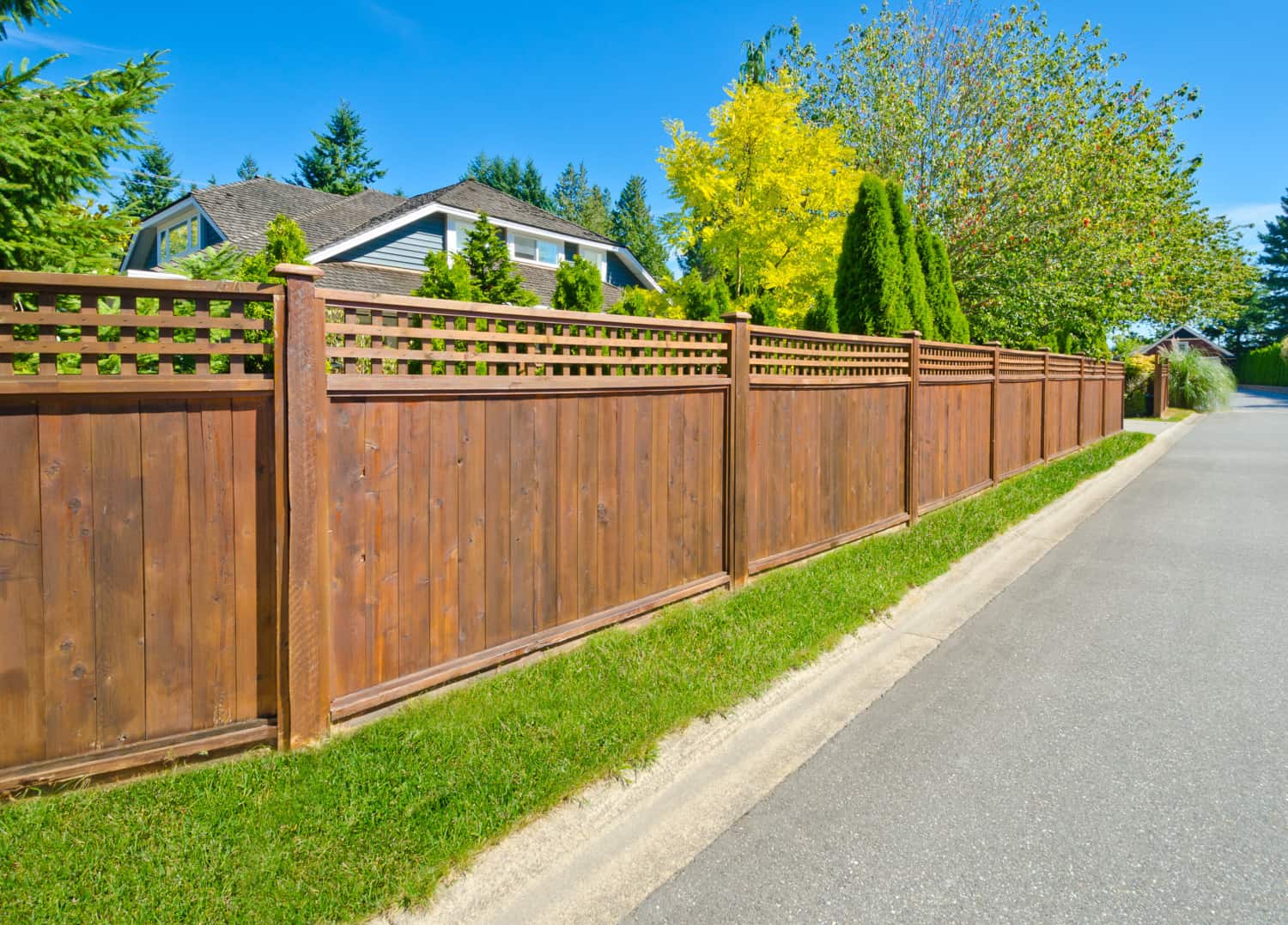All Categories
Featured
Choosing the best secure fencing material for your building is not practically aesthetic appeals; it has to do with privacy, resilience, and protection. Whether you're wanting to boost the appeal of your home or company, protect your building, or develop a private oasis, the material you pick will play a significant duty in attaining your goals. With many fencing alternatives readily available, it is essential to recognize the advantages and disadvantages of each prior to making your decision.
Advantages:
All-natural Visual: Timber has a warm, all-natural charm that boosts the appearance of any kind of property. Personalized: Timber fences can be repainted, discolored, or left without treatment to accomplish different designs. Privacy: A high timber fencing can offer a high level of privacy for your home. Disadvantages:
Upkeep Required: Wood fencings call for normal maintenance, including staining and securing to avoid damage from climate and pests. Susceptible to Weather condition: Wood can warp, rot, or become plagued with termites otherwise effectively kept. Shorter Life-span: Compared to products like plastic or steel, timber commonly has a shorter life-span. Best For: House owners looking for a typical, adjustable, and all-natural look.
![]()
Benefits:
Low Maintenance: Plastic doesn't require painting, discoloration, or sealing. It's very easy to clean with an easy tube down. Sturdy: Resistant to rot, termites, and climate, plastic fencings last much longer than timber fences. Range of Styles: Readily available in lots of styles, shades, and textures to suit any kind of residential property. Disadvantages:
Higher First Expense: The in advance expense of vinyl fencing is commonly more than timber or chain link. Prone to Splitting: In extreme cool or with heavy influence, plastic fencings can break or fracture. Much less Customizable: Unlike wood, vinyl provides fewer options for paint or staining. Best For: Homeowners or companies searching for a low-maintenance, durable, and sturdy secure fencing choice.
Benefits:
Strength and Durability: Metal fencings are strong, immune to use, and resilient. Low Maintenance: When installed, metal fencings require little maintenance, specifically aluminum, which stands up to rust. High Security: Steel fences are hard to climb and supply a reliable barrier versus trespassers. Negative Aspects:
Expense: Metal fencings, specifically functioned iron and steel, can be a lot more pricey than various other choices. Rust and Deterioration: Steel fences, in specific, might corrosion without proper therapy. Aluminum is corrosion-resistant, yet functioned iron calls for regular upkeep. Minimal Privacy: Steel fencings do not use much privacy unless they are integrated with other products, like timber slats or vinyl inserts. Best For: Those who focus on protection and durability over personal privacy, or those with a high end building seeking a sophisticated, classic fencing.
Benefits:
Cost-efficient: Chain web link is just one of one of the most economical secure fencing choices available. Reduced Maintenance: As soon as mounted, chain link fencings require little upkeep past occasional cleaning. Durable: Chain web link is solid and can last for lots of years if properly preserved. Downsides:
![]()
Minimal Aesthetic appeals: Wire mesh fence do not supply the visual charm of timber or functioned iron, and can look practical. Personal privacy Worries: Unless privacy slats or plastic finishings are included, wire mesh fence do not use much privacy. Less Safe in Some Areas: While chain web link supplies safety, it can be quickly scaled or cut if not mounted with additional safety features. Best For: Industrial residential or commercial properties, big residential properties, or areas where security is more crucial than aesthetics.
Benefits:
Low Maintenance: Composite fences call for no discoloration, securing, or paint. Resilience: Resistant to bugs, rot, and weather damages, composite fences last much longer than wood. Eco-Friendly: Numerous composite fences are made from recycled products, making them a sustainable alternative. Downsides:
Greater Price: Composite fences can be extra pricey than conventional timber or vinyl options. Limited Modification: While readily available in numerous colors and styles, composite fences do not offer the same customization choices as wood fences. Heavy: Composite fencing materials can be larger than other alternatives, making setup more labor-intensive. Best For: Eco-conscious homeowners or businesses seeking a low-maintenance, durable, and sustainable secure fencing material.
Conclusion. Selecting the right fencing product for your building eventually relies on your priorities-- whether it's safety, personal privacy, aesthetic appeals, or reduced upkeep. From timeless timber and budget-friendly chain web link to long lasting vinyl and solid steel, each product uses special advantages fit to various needs. By taking into consideration aspects like budget plan, installment time, upkeep demands, and lasting durability, you can choose the suitable fencing that meets your residential or commercial property's details needs.
- Timber Secure fencing. Timber is just one of one of the most popular secure fencing products as a result of its adaptability, ageless allure, and all-natural appearance. It's ideal for properties and can be used in a variety of styles, consisting of personal privacy fences, picket fencings, and post-and-rail fences.
Advantages:
All-natural Visual: Timber has a warm, all-natural charm that boosts the appearance of any kind of property. Personalized: Timber fences can be repainted, discolored, or left without treatment to accomplish different designs. Privacy: A high timber fencing can offer a high level of privacy for your home. Disadvantages:
Upkeep Required: Wood fencings call for normal maintenance, including staining and securing to avoid damage from climate and pests. Susceptible to Weather condition: Wood can warp, rot, or become plagued with termites otherwise effectively kept. Shorter Life-span: Compared to products like plastic or steel, timber commonly has a shorter life-span. Best For: House owners looking for a typical, adjustable, and all-natural look.
- Plastic (PVC) Fencing. Vinyl fences are a progressively preferred option as a result of their reduced maintenance and toughness. Made from artificial products, vinyl fences are immune to rot, degeneration, and pests. Available in a series of shades and designs, plastic secure fencing can be created to simulate the look of wood without the linked maintenance.

Benefits:
Low Maintenance: Plastic doesn't require painting, discoloration, or sealing. It's very easy to clean with an easy tube down. Sturdy: Resistant to rot, termites, and climate, plastic fencings last much longer than timber fences. Range of Styles: Readily available in lots of styles, shades, and textures to suit any kind of residential property. Disadvantages:
Higher First Expense: The in advance expense of vinyl fencing is commonly more than timber or chain link. Prone to Splitting: In extreme cool or with heavy influence, plastic fencings can break or fracture. Much less Customizable: Unlike wood, vinyl provides fewer options for paint or staining. Best For: Homeowners or companies searching for a low-maintenance, durable, and sturdy secure fencing choice.
- Steel Fencing (Light Weight Aluminum, Steel, and Wrought Iron) Metal fencings are understood for their stamina, security, and visual worth. Aluminum, steel, and wrought iron fences are frequently utilized in domestic, business, and commercial setups, using high degrees of safety and security and an innovative look.
Benefits:
Strength and Durability: Metal fencings are strong, immune to use, and resilient. Low Maintenance: When installed, metal fencings require little maintenance, specifically aluminum, which stands up to rust. High Security: Steel fences are hard to climb and supply a reliable barrier versus trespassers. Negative Aspects:
Expense: Metal fencings, specifically functioned iron and steel, can be a lot more pricey than various other choices. Rust and Deterioration: Steel fences, in specific, might corrosion without proper therapy. Aluminum is corrosion-resistant, yet functioned iron calls for regular upkeep. Minimal Privacy: Steel fencings do not use much privacy unless they are integrated with other products, like timber slats or vinyl inserts. Best For: Those who focus on protection and durability over personal privacy, or those with a high end building seeking a sophisticated, classic fencing.
- Chain Link Secure Fencing. Chain link fencings are just one of the most economical and practical choices offered. Generally made use of in industrial settings, they can additionally be a good selection for homes, especially if safety and security is a top concern. Chain link fencings are available in various heights and can be tailored with privacy slats for included protection.
Benefits:
Cost-efficient: Chain web link is just one of one of the most economical secure fencing choices available. Reduced Maintenance: As soon as mounted, chain link fencings require little upkeep past occasional cleaning. Durable: Chain web link is solid and can last for lots of years if properly preserved. Downsides:

Minimal Aesthetic appeals: Wire mesh fence do not supply the visual charm of timber or functioned iron, and can look practical. Personal privacy Worries: Unless privacy slats or plastic finishings are included, wire mesh fence do not use much privacy. Less Safe in Some Areas: While chain web link supplies safety, it can be quickly scaled or cut if not mounted with additional safety features. Best For: Industrial residential or commercial properties, big residential properties, or areas where security is more crucial than aesthetics.
- Compound Fence. Composite fencings integrate wood fibers and plastic to create a resilient, environment-friendly alternative to typical timber secure fencing. These fencings have the look of timber but call for much less maintenance and are immune to rot, parasites, and fading.
Benefits:
Low Maintenance: Composite fences call for no discoloration, securing, or paint. Resilience: Resistant to bugs, rot, and weather damages, composite fences last much longer than wood. Eco-Friendly: Numerous composite fences are made from recycled products, making them a sustainable alternative. Downsides:
Greater Price: Composite fences can be extra pricey than conventional timber or vinyl options. Limited Modification: While readily available in numerous colors and styles, composite fences do not offer the same customization choices as wood fences. Heavy: Composite fencing materials can be larger than other alternatives, making setup more labor-intensive. Best For: Eco-conscious homeowners or businesses seeking a low-maintenance, durable, and sustainable secure fencing material.
Conclusion. Selecting the right fencing product for your building eventually relies on your priorities-- whether it's safety, personal privacy, aesthetic appeals, or reduced upkeep. From timeless timber and budget-friendly chain web link to long lasting vinyl and solid steel, each product uses special advantages fit to various needs. By taking into consideration aspects like budget plan, installment time, upkeep demands, and lasting durability, you can choose the suitable fencing that meets your residential or commercial property's details needs.
Latest Posts
Discover Leading Car Repair Services at Montclare Auto Repair – Quality Service Today
Published May 29, 25
1 min read
Specialist Industrial Roofing Solutions in North Platte, Nebraska
Published May 26, 25
2 min read
Trustworthy Industrial Roofing Providers by Weathercraft
Published May 23, 25
2 min read
More
Latest Posts
Discover Leading Car Repair Services at Montclare Auto Repair – Quality Service Today
Published May 29, 25
1 min read
Specialist Industrial Roofing Solutions in North Platte, Nebraska
Published May 26, 25
2 min read
Trustworthy Industrial Roofing Providers by Weathercraft
Published May 23, 25
2 min read